Italian Alberto Acerbi and Emirati Fatima Salim Al Naqbi explore rise of influencer culture
as part of an engaging panel discussion at Sharjah International Book Fair
An Italian researcher working on cognitive anthropology, cultural evolution, and computational social science, and an Emirati professor debated the impacts of social media and its intricate relationship with contemporary society during a thought-provoking panel discussion at the Sharjah International Book Fair (SIBF 2023).
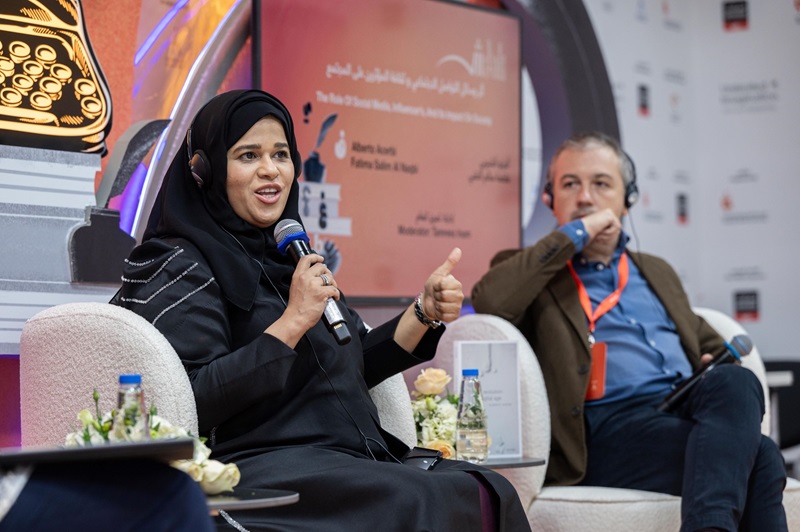
The discussion moderated by writer Tamreez Inam saw Alberto Acerbi and Fatima Salim Al Naqbi explore the rise of influencer culture while debating whether and how influencers leave a mark on the current generation.
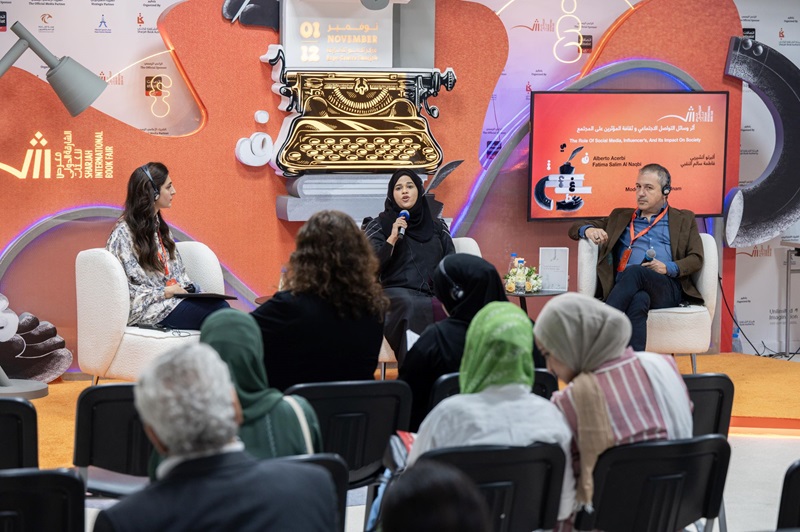
“I’m, in general, quite sceptical about the power of influencers to actually influence people,” said Acerbi who teaches at the University of Trent’s department of sociology and social research. “We need to keep into consideration human psychology when we want to think about the effect of, in this case, influencers. And from what we know in studies that look at human social learning, which is my speciality, it seems that we have the opposite problem. We tend to be too stubborn, often, not to be influenced,” he added, citing how Cristiano Ronaldo may “still fail to shape public opinion, drive consumer behaviour, and influence societal norms” despite being one of the world’s most followed celebrities on social media with close to 900 million followers across platforms.
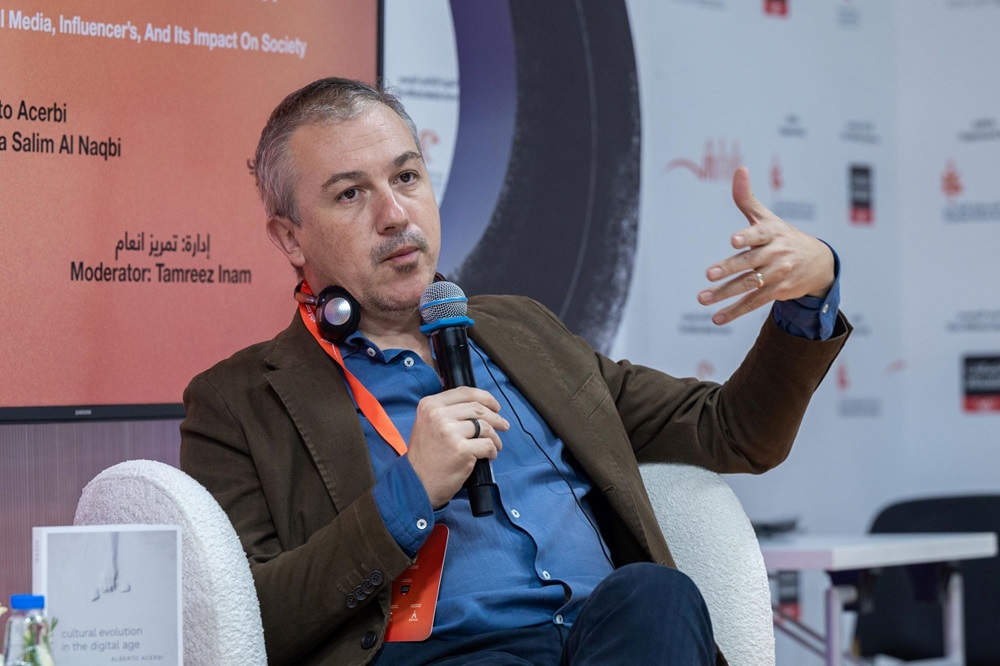
The two panellists also examined how social media has become a catalyst for connection, information sharing, and activism, while also touching on the potential downsides such as misinformation, online toxicity, and the erosion of privacy.
“The effects of social media today are all encompassing, and it’s got everyone involved – mothers, grandmothers, children included,” said Fatema Salim Al Naqbi explaining how the old hypodermic needle model (or the magic bullet theory), a model of communication where an intended message is directly received and wholly accepted by the receiver, has changed over the years.
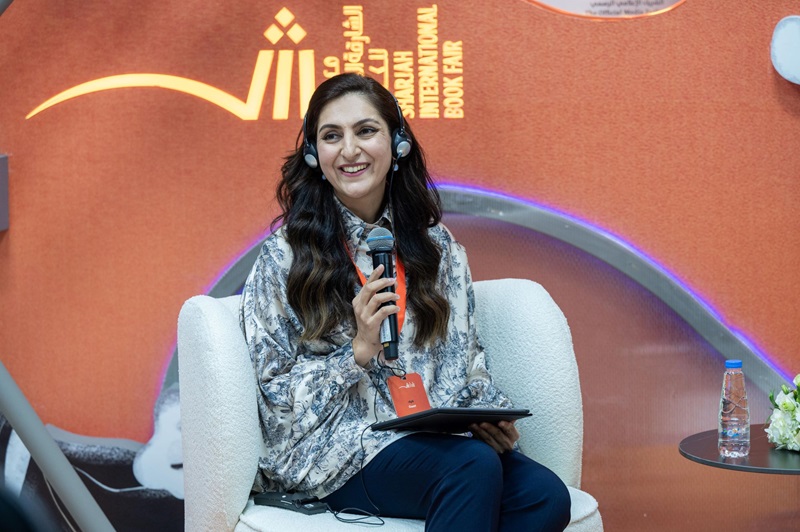
The model was originally rooted in 1930s behaviourism and largely considered obsolete for a long time, but big data analytics-based mass customisation has led to a modern revival of the basic idea, she said.
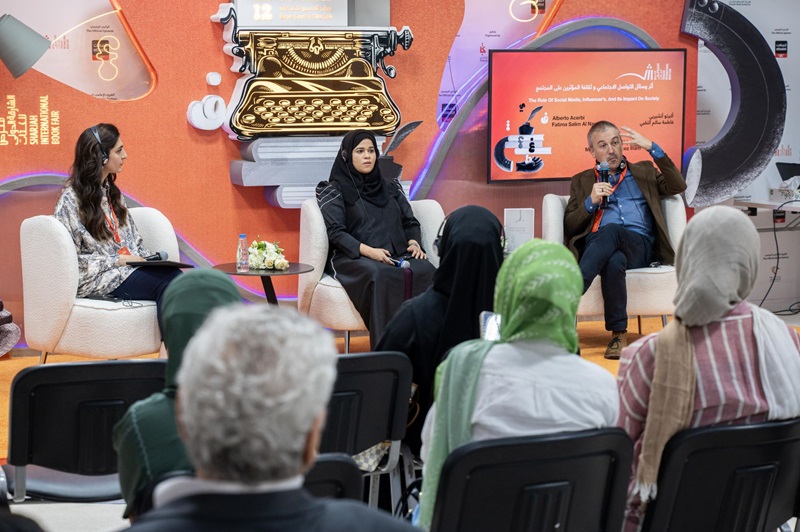
“Previously it was the television that pushed out the information and we as receivers had no choice but to accept what was beamed. We had to believe and accept what we saw but now we have the power to select using a variety of social media channels and that makes it a two-faced coin, one with benefits and pitfalls,” the Emirati academic added while also hailing UAE’s digitalisation initiatives in the public sector and schools and colleges and the guidelines in place that regulate the industry.
The enthralling discussion, marked by academic research-driven insights and probing questions, concluded with a comprehensive examination of the role modern digital forces play in shaping our lives.





